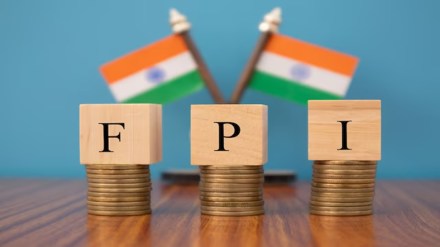The Gujarat International Finance Tec-City (GIFT City) has not been able to emerge as an attractive destination for foreign portfolio investors (FPIs) to route their money. Despite taxation benefits and incentives offered by the government and regulators, only 0.9% of the total 11,927 FPI registrations have taken place through GIFT.
According to NSDL data, 109 entities are registered on the GIFT Indian International Financial Services Centre (IFSC) since its launch in 2011. In comparison, the numbers of registered FPIs in Mauritius, Singapore and Luxembourg are 606, 642, and 1,454, respectively.
According to industry players, various challenges, including lack of adequate infrastructure and workforce, stability issues and operational hindrances, make the GIFT City relatively less attractive compared with jurisdictions like Mauritius, Singapore and Dubai.
Many players have not explored this route and are still following the FPI route, as it has taken almost 10 years for regulatory clarity to emerge, said an industry participant. Investors are still waiting for it to get stable, he said.
Puneet Sharma, CEO of Whitespace Alpha, a GIFT-registered fund, said while lower taxation is very lucrative, there are operational downsides as well.
Various tax and regulatory benefits are provided for units registered at GIFT IFSC, including 100% income tax exemption for a certain period, capital gains tax exemption, exemption from Indian exchange control regulations, state subsidies, GST and customs, interest income and transaction-related exemptions. Sebi also permits up to 100% NRI contribution for FPIs based out of GIFT IFSC and funds can be relocated to GIFT City in a tax-neutral manner.
Operational challenges noted by Sharma include registration with the Ministry of Corporate Affairs and filing of tax with Indian income tax authority, which cause a bit of confusion with regard to the entity’s domicile. “Further, ease of banking and other facilities are not at par with Singapore or DIFC in Dubai,” he noted. “IFSC has to do a bit more to catch up with these places in terms of infra and availability of resources.”
While moving funds from offshore locations to GIFT is being incentivised, some entities have miniscule presence to avail of this benefit.
Sitashwa Srivastava, founder & CEO of Borderless, a global investing platform, said, “Foreign investors try to avoid direct rupee exposure as it becomes tough to manage local compliance. Some investors are also uncomfortable with the depreciation of the currency (relative to the dollar).
Srivastava said he would like to invest via external routes such as Singapore, Luxembourg, etc., as the exercise can be undertaken through vehicles where the currency hedging strategy can be used. Additionally, they are not subject to the same intensity compliance that direct investing would require in India.
Siddharth Shah, senior partner at Khaitan & Co. said, what is holding the number back is a perceptional issue as people need to get comfortable. While this is not a huge challenge, operational aspects in KYC and onboarding of investors need to be made easier. GIFT is also governed under the PMLA regime and those provisions prescribe KYC requirements that are not aligned with easier and convenient provisions offered under some of the other jurisdictions in terms of disclosures and verification.
However, it is definitely a jurisdiction suited to raise money from the global NRI community to invest in India, given the framework of allowing up to 100% NRI participation. It is also preferred by fund managers for tax and other perspectives, he said.
